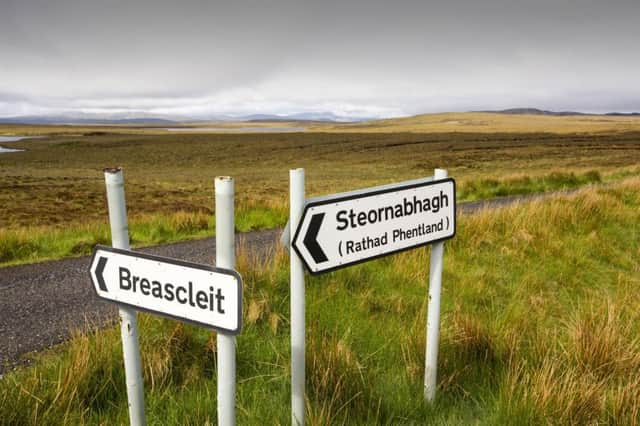Number of island Gaelic speakers ‘plummeting’


Professor Conchúr Ó Giollagáin, the director of the Language Sciences Institute at the University of the Highlands and Islands, warned that the language has come to the point of “societal collapse” across the country, as many children are attending schools in urban areas.
In the 2011 Scottish census, just over 58,000 people reported themselves as Gaelic speakers, however research for a new study estimates that the vernacular group located on the islands, where speakers are more heavily concentrated, does not exceed 11,000.
Advertisement
Hide AdAdvertisement
Hide AdSome would argue Gaelic has seen a cultural revival in recent years, crossing over to popular culture after featuring in the phenomenally successful TV series Outlander. This week Glasgow hosted The Royal National Mòd, Scotland’s foremost Gaelic literature, song and traditional music festival, for the first time in nearly three decades.
But the major new study on the language, due to be published next year, highlights the lack of support for existing speakers, saying Gaelic “will continue as the language of school and heritage but not as a living language”.
Ó Giollagáin told the Guardian in an interview that existing policies to promote Gaelic focus too heavily on encouraging new speakers, mainly in urban areas, or promoting it as a heritage language. He said: “We know that the most important thing for continuity of a language is transfer from one generation to the next, but there is no family support scheme for speakers.”
Last week, the Scottish Government announced £2m funding for a fourth Gaelic primary school in Glasgow.
Although many working with the language welcome the investment, they agree it’s not enough to solve the problem in the long run.
Brian Ó hEadhra, the arts and culture adviser at Bòrd na Gàidhlig, the public body with responsibility for the Gaelic language, said: “We need more people to use it more often. We also have to be realistic about the numbers because this is not just about language but societal shifts, with ongoing population decline in the Gaelic heartlands.”
Recently it launched a campaign encouraging Gaelic-speakers to use the hashtag #cleachdi or #useit to encourage conversations in the language.